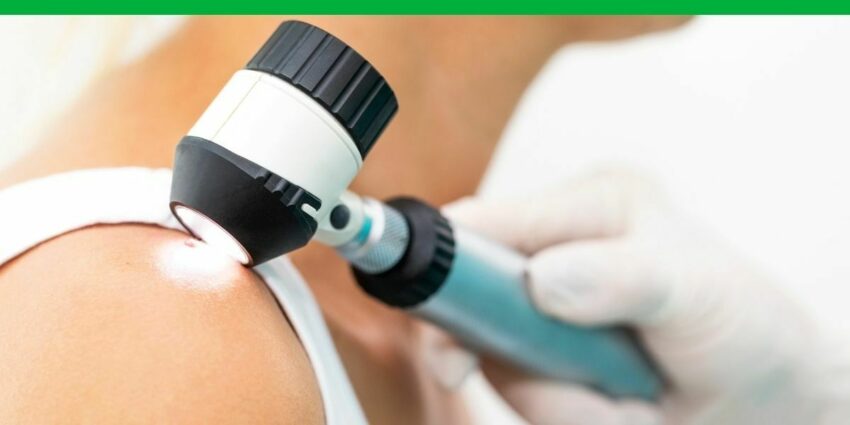
Spreading awareness: Skin cancer and its warning signs
Post Date - Apr 27, 2023
With summertime approaching, you may feel the temptation to spend more time in the sun. While soaking up some UV rays can be good for your mental and physical health, we wanted to take some time to go over one of the unfortunate consequences of spending time in the sun without proper UV protection: skin cancer.
Developing skin cancer
Skin cancer is the most common form of cancer in U.S. adults, with over 90% of cases directly linked to sun overexposure –– whether severe sunburns or time spent in tanning beds. When it comes to skin cancer, geographic location is also a contributing factor! People who live in the southern part of the United States are closer to the equator and likely to have greater exposure to UV rays than their northern counterparts, increasing their risk for developing skin cancer.
Additionally, due to certain genetic factors, people who have blonde or red hair, blue or green eyes, and lighter complexions that freckle easily are more at risk for skin cancer. Your susceptibility for this disease also increases if your parents, siblings, or children have had certain variations of this disease. In some cases, it can double your chances. Previously having skin cancer or having a diagnosis of a weak immune system are also factors that increase the chances of you developing the disease. To boost protection against harmful UV rays, it is important to remember to always wear sunscreen with an SPF of 15 or higher.
However, even if you have protected yourself to the best of your ability, there are certain things to look out for when it comes to skin cancer.
Warning signs
There are some warning signs that indicate you may have a skin growth that is cancerous and dangerous to your health. When these growths are caught early on, they are more easily cured, making annual appointments with a dermatologist paramount!
Here are some early warning signs:
- An open sore/bump that itches, bleeds, scabs, and repeats for three or more weeks
- A patch of skin that is red or irritated
- A shiny bump regardless of color
- A pink growth with a raised border and crusted indentation (may look like a wart)
- An area that looks like a scar, is tight and shiny
There are specific ways to identify melanoma, the most dangerous type of skin cancer.
Melanoma
This is the most dangerous form of skin cancer, but can usually be cured when caught it in its early stages. To help people identify skin growths that could threaten their physical health and should be examined by a healthcare professional, here are the ABCDEs of melanoma.
- Asymmetry: If you split the mole in half, the two halves would not be the same
- Border: Uneven edges are an early sign of melanoma
- Color: Moles that are more than one color should be looked at by a healthcare professional
- Diameter: Melanoma is typically around the size of a pencil eraser
- Evolving: If the mole changes in size, shape, color, or any other identifying feature (like bleeding), a healthcare professional should look at it
Ascend wants our drivers to put their physical health first, in every situation. If your carrier isn’t prioritizing your health, connect with us and learn more about our open driving positions.
Sources
1 Prevent Cancer Foundation website: Skin Cancer (accessed December 2017): preventcancer.org.
2 Skin Cancer Foundation website: Skin Cancer Facts (accessed December 2017): skincancer.org.
3 Centers for Disease Control and Prevention website: What Are the Risk Factors for Skin Cancer? (accessed December 2017): cdc.gov.
4 Prevent Cancer Foundation website: Frequently Asked Questions (accessed December 2017): preventcancer.org.
5 National Cancer Institute website: What You Need to Know About Melanoma and Other Skin Cancers (accessed December 2017): cancer.gov.
6 WebMD website: Melanoma/Skin Cancer Health Center (accessed December 2017): webmd.com.
7 Skin Cancer Foundation website: Do You Know Your ABCDEs? (accessed December 2017): skincancer.or